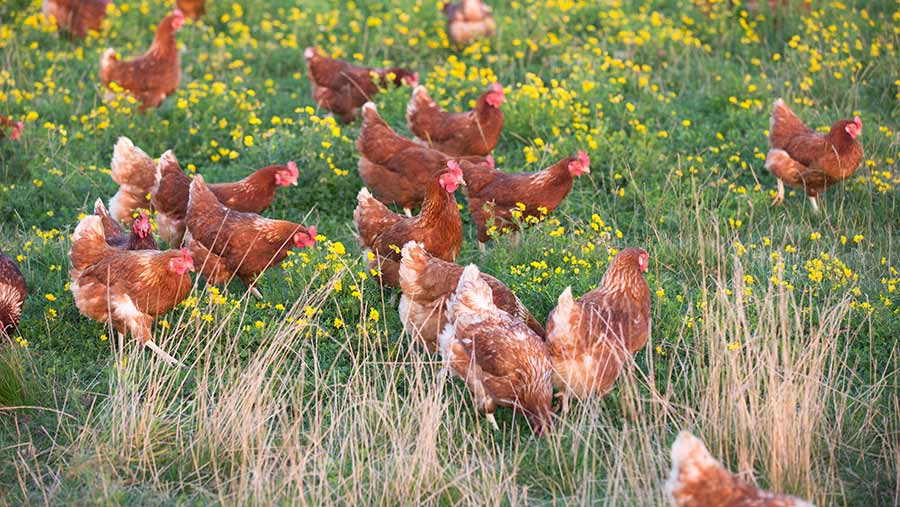Warning issued as avian flu hits North and South
 © Tim Scrivener
© Tim Scrivener Avian influenza continues to hit poultry flocks across the UK with a prominent cluster of cases in the Suffolk area.
At the end of February, the 100th case of bird flu this winter was recorded in a Suffolk-based flock. Since then, all of the cases in England – a further five – have been recorded in the county.
See also: Praise for Ukrainian farmers capturing Russian military kit
The latest was confirmed in a commercial flock near Woodbridge on 27 March, prompting chief vet Christine Middlemiss to call for a step-up in biosecurity.
Ms Middlemiss said: “Many poultrykeepers in Suffolk have excellent biosecurity standards. But the number of cases we are seeing suggests that not enough is being done to keep bird flu out.
“Whether you keep just a few birds or thousands, you must take action now to protect your birds from this highly infectious disease.”
March cases
- 27 March Second premises near Woodbridge, East Suffolk
- 20 March Near Woodbridge, East Suffolk
- 19 March Near Strichen, Aberdeenshire
- 18 March Near Beith, North Ayrshire
- 12 March Near Market Weston, West Suffolk
- 11 March Second premises near Redgrave, Mid Suffolk
- 11 March Near Collieston, Aberdeenshire
- 1 March Near Redgrave, Mid Suffolk
Veterinary reviews of infected farms have found an over-reliance on perimeter measures and a lack of biosecurity within the unit, Ms Middlemiss said.
Outbreaks have been traced back to infected bedding and inadequate building maintenance. Crucially, managers had failed to communicate to staff the risks of the disease, which can remain active for 21 days on surfaces and clothing.
The chief vet pointed to the minimum biosecurity measures that must be upheld.
- House or net all poultry and captive birds to keep them separate from wild birds
- Use disposable protective wear when possible
- Cleanse and disinfect clothing, equipment and vehicles before and after contact with poultry and captive birds
- Ideally, change footwear before entering sheds or at least ensure it is thoroughly cleaned and disinfected
- Limit the movement of people, vehicles or equipment to minimise contamination from manure, slurry and other products
- Use effective vermin control
- Cleanse and disinfect housing thoroughly and continuously
- Refresh disinfectant at the right concentration at all farm and shed entry points
- Store bedding where it cannot be contaminated by wild birds or vermin
Contacts and information
All birds on the latest affected farms will be humanely culled to help limit the spread of the disease.In addition, farms in the area where the latest cases were found will be placed under 3km-wide protection zones and 10km surveillance zones.
If you find dead swans, geese, ducks or other wild birds, you should report them to the Defra helpline on 03459 33 55 77.
Birdkeepers must report suspicion of disease:
- England Defra Rural Services helpline: 03000 200 301
- Wales: 0300 303 8268
- Scotland: contact the local field services office
- Northern Ireland: 0300 200 7840
